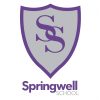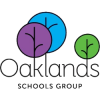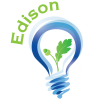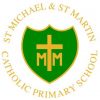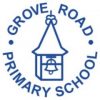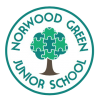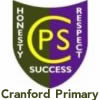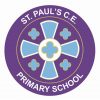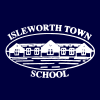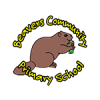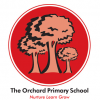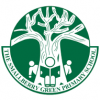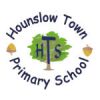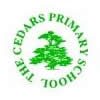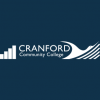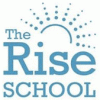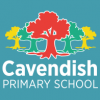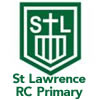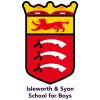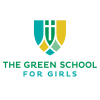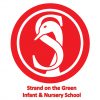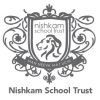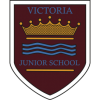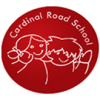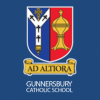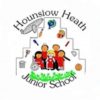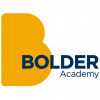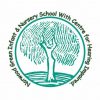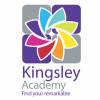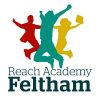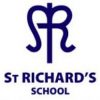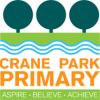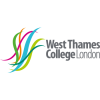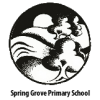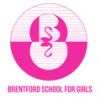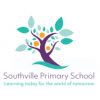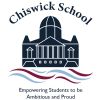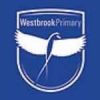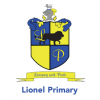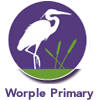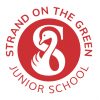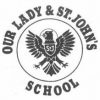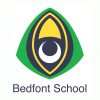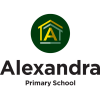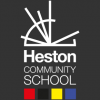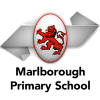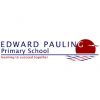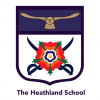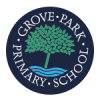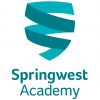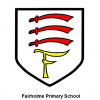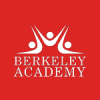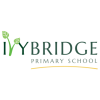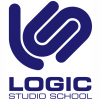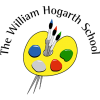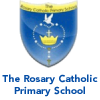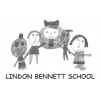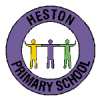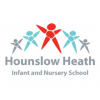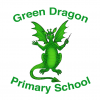Dear Subject Leader/Teacher/Teaching Assistant,
Welcome to the HEP Primary Computing homepage. On this page you will find a range of resources and information to support you if you are the subject leader for Computing at your school and/or a classroom teacher/teaching assistant looking for advice and guidance to support your lesson planning.
The national curriculum for Computing aims to ensure that all pupils:
- can understand and apply the fundamental principles and concepts of computer science, including abstraction, logic, algorithms and data representation
- can analyse problems in computational terms, and have repeated practical experience of writing computer programs in order to solve such problems
- can evaluate and apply information technology analytically, including new or unfamiliar technologies, to solve problems
- are responsible, competent, confident and creative users of information and communication technology
Computing SL Resource File September 2023
Subject Self-evaluation template
Computing Subject Leader Workbook September 2022
For an editable version of the subject leader workbook, please contact info@hounsloweducationpartnership.co.uk
May 2022: Ofsted Research Review Series: Computing
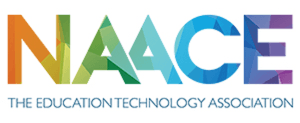 The Educational Technology Association (NAACE) provides high quality resources to support the teaching and learning of these four aims. Another very useful organisation is Computing in Schools which has over 850 resources aimed at all ages and abilities and covering all areas of the visual arts. (Details of what both organisations are able to offer you, are set out below).
The Educational Technology Association (NAACE) provides high quality resources to support the teaching and learning of these four aims. Another very useful organisation is Computing in Schools which has over 850 resources aimed at all ages and abilities and covering all areas of the visual arts. (Details of what both organisations are able to offer you, are set out below).
The Educational Technology Association
https://www.naace.co.uk/
(Membership: School £75 / annum)
NAACE offers a range of supporting documents to help practitioners successfully and competently, utilising educational technology within their educational settings.
Below you will find access to:
- eGuides
- The Advancing Education Journal
- Primary Resources & Activities
- Computing Curriculum Documentation
eGuides
Naace publishes a series of publications, developed to address the ongoing needs of schools – the Naace eGuides.
Naace believes that technology has a major role to play in raising standards in learning across the curriculum, provided teachers know how to adapt their pedagogies in order to maximise the potential gains offered by learning technologies.
There are three categories of eGuides:
- The Technology Across the Curriculum eGuides– show how to use technology creatively and effectively to make significant impacts on learning and standards in other curriculum areas.
- The Computing eGuides – cover key aspects of the subject outside Computer Science.
- Technology Management & School Leadership eGuides – support school leaders in the strategic deployment of technology.
The Advancing Education Journal
This is a leading journal comprised of an eclectic mix of academic and action research papers and reports from members, sponsoring partners and other expert guests on the innovative uses of digital technologies in education.
Primary Resources & Activities
The Primary Activities are a collection of archived resources produced by NAACE and our partner organizations. They provide Primary Schools with innovative and creative ways to teach the curriculum.
STEM (Teaching and learning of science, technology, engineering and mathematics (STEM subjects)
https://www.stem.org.uk/primary-computing-resources
This website houses thousands of free-to-access, quality assured resources to support the teaching and learning of science, technology, engineering and mathematics (STEM subjects)
Primary computing resources
Teaching resources to develop an understanding of the computing curriculum, helping children to become creative, confident and safe.
Themes include:
Algorithms
KS1: https://www.stem.org.uk/resources/community/collection/357940/ks1-algorithms
KS2: https://www.stem.org.uk/resources/community/collection/359714/ks2-algorithms
Data
KS2: https://www.stem.org.uk/resources/community/collection/362369/ks2-data
Digital Literacy
KS1 https://www.stem.org.uk/resources/community/collection/358237/ks1-digital-literacy
KS2: https://www.stem.org.uk/resources/community/collection/362373/ks2-digital-literacy
Information Technology
KS1: https://www.stem.org.uk/resources/community/collection/359119/ks1-information-technology
KS2: https://www.stem.org.uk/resources/community/collection/364029/ks2-information-technology
Programming
KS1: https://www.stem.org.uk/resources/community/collection/359493/ks1-programming
KS2: https://www.stem.org.uk/resources/community/collection/364674/ks2-programming-and-development
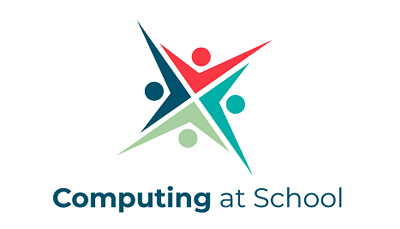 Computing at School (CAS) https://www.computingatschool.org.uk/
Computing at School (CAS) https://www.computingatschool.org.uk/
CAS’s mission is to lead and promote excellence in all those staff involved in Computing education in schools. Our aim is for computing – with Computer Science at its heart – to become firmly established in all Primary and Secondary schools alongside maths and the natural sciences.
Primary Resources to GET STARTED
Essential Reading:
CAS Primary Curriculum Guidance Document
Help for primary schools with planning and gives guidance on how best to develop teachers' skills
Packed full of articles written by teachers in both primary and secondary sectors, plus a roundup of news about the many initiatives now promoting the development of Computing in schools. Lots of practical resources to use in the classroom and help enhance your understanding of the new curriculum.
Computational Thinking and Assessment
A computational thinking guide & Progression Pathways assessment framework including computational thinking: KS1 (Y1) to KS3 (Y9)
See also:
- Assessing attainment in computing
- Open Badges for assessing primary computing
- Assessment spreadsheet for KS1 and 2 (can be adapted for KS3)
The new computing curriculum
An introduction for primary teachers - PowerPoint used in a CPD session based on content from the NAACE/CAS guidance for primary teachers
Computing POS - guidance notes for Primary and Infant schools
This has been written for Head teachers, Governors, the SLT and class teachers. The aim of this document is to demystify the programme of study and to dispel fears that it might be difficult to implement in their school.
Other Classroom Resources
- KS1 resource list - This is very much a work in progress! A list of resources to support the KS1 computing curriculum, which grew out of the discussion here
- Teaching Computational Thinking To Primary Schools - Guide to resources available for new UK Computing Curriculum. This was presented at 21st century learning in Hong Kong to a full house and gives an overview of the new curriculum, resources, available and a shameless plug for CAS Bangkok! Good for PD & resource reference point. You Tube Video
- Primary computing keywords posters
- Algorithms - helping pupils to use and understand that term - This is a YouTube video using a very well-known song using a different version of lyrics and children's animation for education only.
- Scratch - KS1 and 2 Teacher Resources - Worksheets from a Scratch course for primary
- Python for absolute Beginners - Python for absolute Beginners (SoW, Assessments, Resources & Mark Schemes)
- Scratch Animation Programming Unit - Scratch Animation Programming Unit for pupils in their first year of secondary school or top primary.
- Sorting Algorithms with Horrible Histories - Uses Kings & Queens of England to teach children the basics of sorting algorithms
- Complete Scratch Unit for Years 5 & 6 - Complete term's learning using Scratch for coding
KS1 Subject Knowledge:
- algorithms
- create and debug simple programs
- use logical reasoning to predict the behaviour of simple programs
KS2 Subject Knowledge:
- use sequence, selection, and repetition in programs; work with variables and various forms of input and output
- use logical reasoning to explain how some simple algorithms work and to detect and correct errors in algorithms and programs
- understand computer networks including the internet; how they can provide multiple services, such as the world wide web
- appreciate how results are selected and ranked
- Computational Thinking Concepts (KS1 and KS2)
- Computer Science Concepts (KS1 and KS2)
a) can understand and apply the fundamental principles and concepts of computer science, including abstraction, logic, algorithms and data representation
CS: Computer Science
KS1 Subject Knowledge
Algorithms:
- understand what algorithms are
- understand how algorithms are implemented as programs on digital devices
- understand that programs execute by following precise and unambiguous instructions
create and debug simple programs
use logical reasoning to predict the behaviour of simple programs
- use logical reasoning to predict the behaviour of simple programs
- design programs that accomplish specific goals
- write programs that accomplish specific goals
- control physical systems
- simulate physical systems
KS2 Subject Knowledge:
use sequence, selection, and repetition in programs; work with variables and various forms of input and output
- use sequence in programs
- use selection in programs
- use repetition in programs
- work with variables
- work with various forms of input
- work with various forms of output
use logical reasoning to explain how some simple algorithms work and to detect and correct errors in algorithms and programs
- use logical reasoning to explain how some simple algorithms work
- use logical reasoning to detect and correct errors in algorithms
- use logical reasoning to detect and correct errors in programs
understand computer networks including the internet; how they can provide multiple services, such as the world wide web
- understand computer networks including the internet
- multiple services provided by networks and the internet, such as the world wide web
appreciate how results are selected and ranked
b) can analyse problems in computational terms, and have repeated practical experience of writing computer programs in order to solve such problems
CS: Computer Science
Computational Thinking Concepts (KS1 and KS2)
Computer Science Concepts (KS1 and KS2)
c) can evaluate and apply information technology, including new or unfamiliar technologies, analytically to solve problems
IT: Information Technology
| KS1 | KS2 | |||
| IT | Use technology purposefully to create, organise, store, manipulate and retrieve digital content. | Use search technologies effectively. Select, use and combine a variety of software (including internet services) on a range of digital devices to design and create a range of programs, systems and content that accomplish given goals, including collecting, analysing, evaluating and presenting data and information. |
||
d) are responsible, competent, confident and creative users of information and communication technology.
DL: Digital Literacy
| DL | Recognise common uses of information technology beyond school. Use technology safely and respectfully, keeping personal information private; identify where to go for help and support when they have concerns about content or contact on the internet or other online technologies. |
Understand the opportunities [networks] offer for communication and collaboration. Be discerning in evaluating digital content. Use technology safely, respectfully and responsibly; recognise acceptable/unacceptable behaviour; identify a range of ways to report concerns about content and contact. |
Progression in Computing
| CS | IT | DL | |
| A | Understand what algorithms are Create simple programs |
Use technology purposefully to create digital content Use technology purposefully to store digital content Use technology purposefully to retrieve digital content |
Use technology safely Keep personal information private Recognise common uses of information technology beyond school |
| B | Understand that algorithms are implemented as programs on digital devices Understand that programs execute by following precise and unambiguous instructions Debug simple programs Use logical reasoning to predict the behaviour of simple programs |
Use technology purposefully to organise digital content Use technology purposefully to manipulate digital content |
Use technology respectfully Identify where to go for help and support when they have concerns about content or contact on the internet or other online technologies |
| C | Write programs that accomplish specific goals Use sequence in programs Work with various forms of input Work with various forms of output |
Use search technologies effectively Use a variety of software to accomplish given goals Collect information Design and create content Present information |
Use technology responsibly Identify a range of ways to report concerns about contact |
| D | Design programs that accomplish specific goals Design and create programs Debug programs that accomplish specific goals Use repetition in programs Control or simulate physical systems Use logical reasoning to detect and correct errors in programs Understand how computer networks can provide multiple services, such as the World Wide Web Appreciate how search results are selected |
Select a variety of software to accomplish given goals Select, use and combine internet services Analyse information Evaluate information Collect data Present data |
Understand the opportunities computer networks offer for communication Identify a range of ways to report concerns about content Recognise acceptable/unacceptable behaviour |
| E | Solve problems by decomposing them into smaller parts Use selection in programs Work with variables Use logical reasoning to explain how some simple algorithms work Use logical reasoning to detect and correct errors in algorithms Understand computer networks, including the internet Appreciate how search results are ranked |
Combine a variety of software to accomplish given goals Select, use and combine software on a range of digital devices Analyse data Evaluate data Design and create systems |
Understand the opportunities computer networks offer for collaboration Be discerning in evaluating digital content |
CS: Computer Science
IT: Information Technology
DL: Digital Literacy
If you have used or know of any good resources to share with other subject leaders or teachers in Hounslow, please email them to Nikola Standing – n.standing@hounsloweducationpartnership.co.uk







